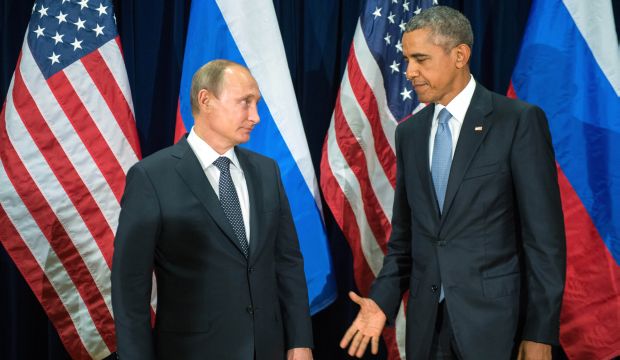During last Thursday’s US Senate hearing tackling military and political affairs, those present unanimously agreed that by interfering in Syria, Russia has become a growing danger to the United States in terms of influence and interests.
They also agreed that Russia is posing a threat to the security of the Middle East. One of the experts described what is happening as “dangerous,” recalling that Russia has never fought outside its areas of influence, not even during the Cold War.
In fact, American losses are much greater than this. Washington’s current policies have pushed allies like Saudi Arabia, Egypt, the UAE, and Kuwait to sign military agreements with Moscow, a fact that showcases an unprecedented nadir in these countries’ relations with Washington. The US’s traditional regional allies were forced to reconcile with Moscow when Washington looked askance at their interests, a case in point being the nuclear agreement with Tehran.
During the Senate hearing it was revealed that Russia repeatedly violated European airspace last year, and is now violating NATO member Turkey’s airspace.
The Russian military intervention in the Middle East, which follows the annexation of Crimea in 2014, might not be the end of the current alarming scenario for the West; in reality it is probably just the beginning. It is clear that Moscow strives to expand in the region, to impose its position and bolster its relations at the expense of the United States. This is unsurprising. During the past six years, the US has deliberately distanced itself from the Middle East, especially in Iraq, the Gulf, and Egypt. Washington has taken further negative steps in refusing all appeals from Arab allies to cooperate against the massacres committed by the Assad regime in Syria. What made things even worse was when Washington did nothing when Iran and Hezbollah sent thousands of fighters to Syria. The Arab allies of the United States are now seeing how the US is begging the Iraqi government not to reduce its security in Baghdad’s Green Zone, thus revealing an American weakness for the first time since the 1960s.
The US is certainly stronger than Russia in terms of military capabilities, but the politics of the current American administration are based on avoiding any military confrontation and staying away from regional conflicts. Washington has also rejected all calls urging it to take part in the conflicts in Syria, Libya, and Yemen, as well as in Sub-Saharan Africa after the kidnapping of the Nigerian schoolgirls by Boko Haram. The US took its time and even its efforts against the Islamic State of Iraq and Syria (ISIS) in Iraq came pretty late in the end.
Following Russian efforts in the region, the Americans have suddenly raised their voices to condemn these regressive policies and are reconsidering the strategy of confrontation with the Kremlin. In my opinion, Washington has committed its biggest mistake in Iran, not in Syria. The nuclear deal has ended up putting constraints on Washington and not Tehran. The US avoided confronting the Iranians, who have now expanded their forces in Iraq and Syria. This served the interests of the Russians—at the expense of US—as we see today.
The US will not be able to engage in a military confrontation with Russia because there are no legal justifications for such action in the absence of a decision from the UN Security Council. Moreover, the US has not established a group that can take its defense or protect its legitimacy, and the Iraqi government is no longer listening to Washington’s objections and will surely refuse to grant the US legitimacy with regards to the Russians on its soil.
Therefore, Washington’s problem lies in the terrible deal it signed with Tehran which has now turned into a Trojan horse for the Russians since they are on the same team as Iran in Iraq and Syria, in addition to cooperating together in different regions in Afghanistan against American interests and Washington’s traditional allies.
